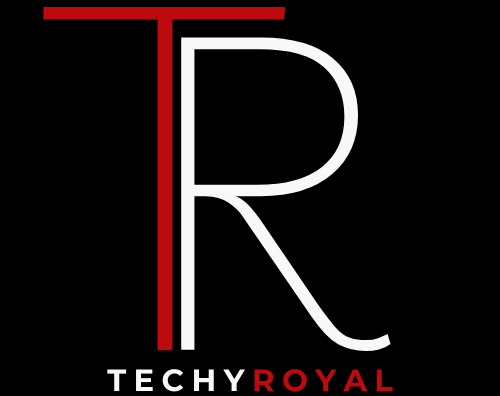Connecting the Dots: Lifestyle, Biometrics, and Health Outcomes with Joe Kiani of Masimo
For decades, healthcare has measured outcomes by what happens inside a clinic, lab results, prescriptions, and procedures. But real health is shaped by what happens outside those walls: how people eat, sleep, move, and recover. Today, digital health tools are bridging that gap by connecting lifestyle patterns with biometric signals to help users see how daily choices impact long-term wellness. Joe Kiani, Masimo and Willow Laboratories founder, has long supported this more complete approach. Through his latest innovation, Nutu™, he’s helping turn lifestyle and biometric data into simple, actionable insights people can use to make better decisions in real time.
When platforms connect the dots between what we do and how our bodies respond, the path to prevention and care becomes more personal, and outcomes start to improve from the ground up. Insights once buried in data become actionable steps. Those steps, taken consistently, can lead to lasting behavior change and better health over time.
Lifestyle Is the Missing Context
Most chronic conditions don’t develop overnight. They build slowly, shaped by years of sleep patterns, stress cycles, meal timing, and physical activity. But those factors rarely make it into the conversation until symptoms appear. By integrating lifestyle data, how often someone moves, how late they eat, and when they feel most fatigued, digital platforms help uncover trends that would otherwise go unnoticed.
These patterns can highlight what’s driving energy dips, blood sugar fluctuations, or inconsistent recovery. Without this context, care can feel reactive and fragmented. With it, people begin to understand the bigger picture and how small changes can steer them toward better outcomes.
Biometrics Turn Behavior into Insight
While lifestyle choices are visible, the body’s response is often not. That’s where biometrics come in. Wearables and sensors now track heart rate, blood glucose, temperature, sleep cycles, and more, turning everyday behavior into measurable data.
This feedback helps users understand how their choices impact their health in real time. Did a late-night snack affect sleep quality? Did extra movement improve energy levels the next day? Biometrics provide clarity where guesswork once stood. Platforms analyze these signals continuously, looking for meaningful connections. When behavior and biology start to align, users can act with more confidence and more motivation.
From One-Time Metrics to Daily Guidance
Historically, health data has been gathered in moments, a lab test, a physical exam, or a single blood pressure reading. But one snapshot rarely tells the full story. Long-term health depends on patterns, not points. Nutu shifts the focus from isolated metrics to continuous guidance. If sleep quality drops, a user might receive a reminder to wind down earlier. If sugar readings trend upward, the system may suggest a change in meal timing. These alerts are tied to real observations, not static numbers. By layering biometric tracking with behavioral cues, users receive a type of coaching that evolves with them, not just advice, but support.
Joe Kiani, Masimo founder, points out, “Some of the early users that have been giving us feedback are saying really positive things about what it’s done for them.” That insight shapes Nutu’s approach. The use of biometrics to inform, not overwhelm. Offer suggestions that meet people where they are. Track success by how often users stay engaged, not just how quickly metrics improve.
Building Self-Awareness, Not Just Compliance
Many health apps focus on tracking data, such as steps walked, calories logged, and hours slept, but tracking alone doesn’t change behavior. What matters is interpretation. When platforms help users see connections between choices and outcomes, they promote self-awareness.
Someone who notices that late meals affect both sleep and stress might start shifting dinnertime. A person who sees energy improve after three days of hydration may stay more consistent. This kind of insight doesn’t rely on perfection. It rewards curiosity, effort and learning, and builds motivation from within.
Helping Clinicians See the Full Picture
It’s not just users who benefit from connected data. Providers also gain a more complete view of what’s happening between visits. A single glucose reading may not explain a trend, but paired with activity, sleep and meal timing, the story becomes clear.
Clinicians can use these insights to tailor recommendations more precisely. They no longer have to rely on recall or assumptions. Instead, they can respond to patterns, what’s working, what’s not, and where to focus next. This leads to better communication, more relevant care plans and a stronger partnership between patient and provider.
Making Prevention Accessible and Realistic
Lifestyle and biometric data must support better outcomes through a simple experience. Patients don’t need complex dashboards or scientific explanations; they need clear, timely feedback. Nutu is designed to keep things simple and encouraging. The app offers brief nudges, visual summaries, and habit prompts that are easy to understand and act on. Whether someone uses it daily or weekly, the experience adapts to their level of engagement. This flexibility supports more users, including those who may be new to digital health or managing multiple priorities.
The Power of Seeing Progress
Many people give up on health goals because they don’t see results quickly. Biometrics helps change that by showing small improvements users may not notice on their own, such as better recovery, more stable sugar levels, or improved sleep quality. These markers offer reinforcement that the effort matters. When behavior change is connected to visible outcomes, motivation lasts longer. Over time, users learn that even minor adjustments can influence how they feel, sleep and perform. That’s where prevention takes hold, not as a campaign, but as a daily practice.
A Smarter Approach to Long-Term Health
The more people understand the connection between lifestyle, biometrics and outcomes, the better equipped they are to manage their health. Nutu brings that connection into focus, helping users take ownership of prevention without guesswork. Joe Kiani’s vision reflects a growing understanding across healthcare that sustained improvement doesn’t require massive change, but smart, consistent action supported by insight. By linking what users do to how their bodies respond, the app gives them tools that feel personal, timely and achievable.
As digital health continues to evolve, the ability to connect behavior with biology will be essential. It will not only support healthier individuals but also shape a system built around clarity, consistency, and better outcomes.




